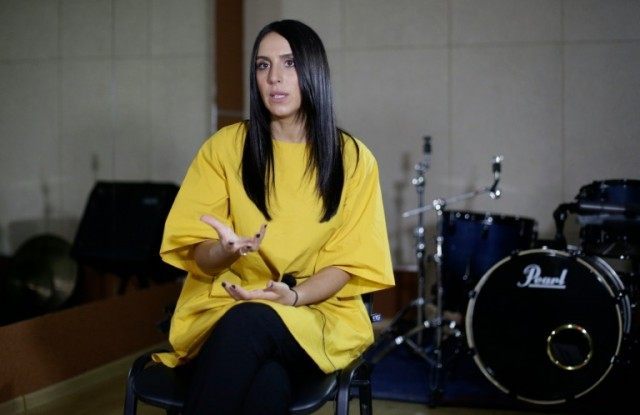Moscow (AFP) – Several Russian lawmakers on Monday denounced Ukraine’s choice of a Crimean Tatar to represent the country in this year’s Eurovision song contest, calling it a political choice aimed at vilifying Russia.
“It is a strange choice. I am convinced that this vote is intended to offend Russia,” Vadim Dengin, head of the Information Committee in the parliament’s lower house, the State Duma, told the RIA Novosti news agency.
Jamala, a well-known jazz singer in Ukraine, on Sunday beat five other finalists competing to represent the country at Eurovision in Stockholm in May.
For the contest, she will sing “1944” — a harrowing song about Stalin’s wartime deportation of the Muslim Tartar minority of Crimea, memories of which have been revived by Russia’s annexation of the Crimean peninsula in 2014.
“It is a political choice,” said Leonid Slutsky, chairman of the Duma committee for relations with former Soviet states, although he called for a response which was not too “tough”.
Crimea’s pro-Russian authorities also accused Kiev of exploiting the tragedy of the Tartars of Crimea through its Eurovision entry.
“The Ukrainian authorities are going to try to use the song” for political ends, “capitalising on the tragedy of the Tartars to impose on European viewers a false picture of alleged harassment of the Tartars in the Russian Crimea,” Crimea’s pro-Moscow deputy prime minister Russlan Balbek told RIA Novosti.
Jamala’s song is about the tragedy that befell her great-grandmother in 1944 when Soviet dictator Josef Stalin deported 240,000 Tatars — or nearly the entire community — to barren Central Asia and other far-flung lands.
Crimean Tatars, who began returning to their ancestral homeland after the fall of the Soviet Union in 1991, were horrified by Russia’s takeover of the region in 2014, with the majority opposing the new authorities.
In the wake of Russia’s annexation, many Tatar activists were arrested or had their homes raided.
The international community has not recognised Russia’s annexation and the United Nations has condemned widespread human rights violations against the Tatar community.

COMMENTS
Please let us know if you're having issues with commenting.